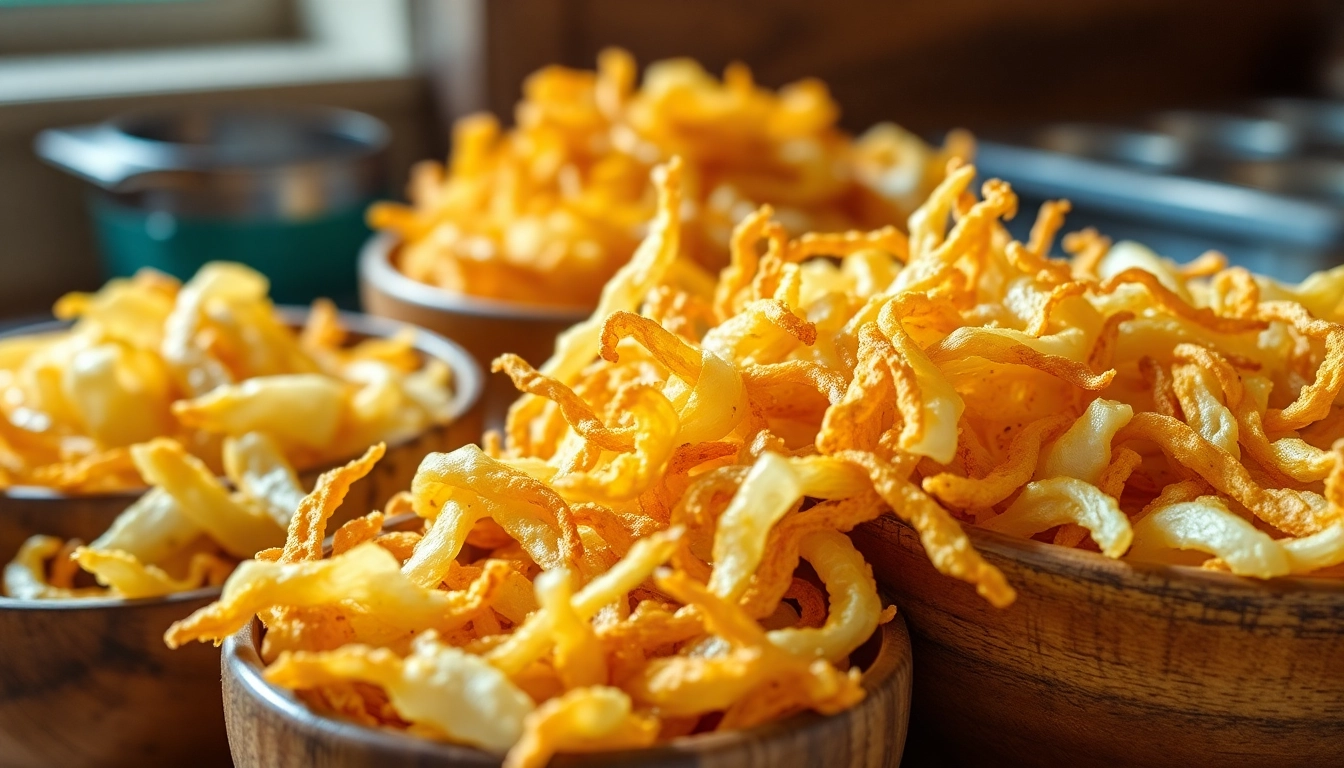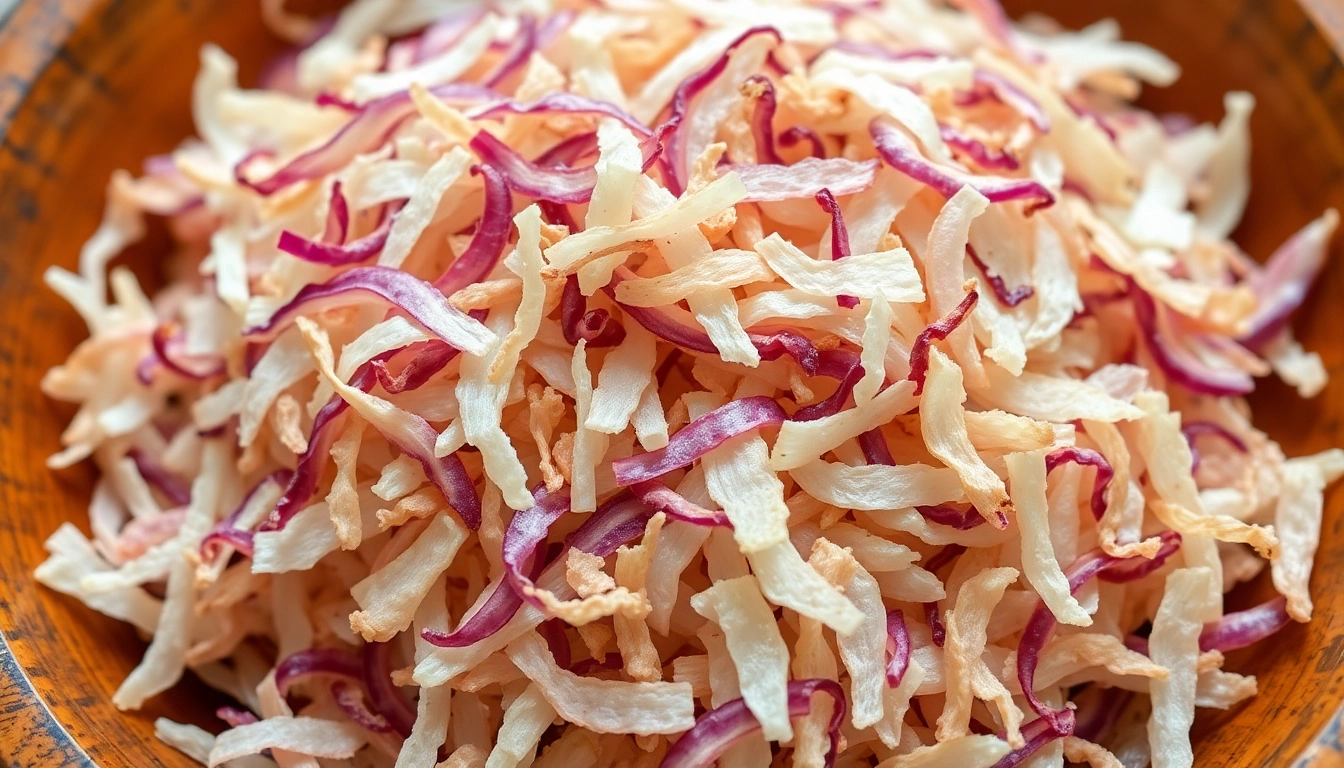Understanding and Leveraging Dehydrated White Onion in Modern Culinary and Food Industries
Introduction to Dehydrated White Onion and Its Culinary Uses
Dehydrated white onion has become an essential ingredient in both domestic kitchens and the global food industry due to its convenience, long shelf life, and concentrated flavor. As a dehydrated form of fresh white onion, it retains much of the original aroma and taste while offering advantages such as reduced moisture content and enhanced storage stability. This product is particularly favored in processed foods, spice blends, and ready-to-eat formulations. Dehydrated White Onion has gained popularity not only for its practicality but also for its ability to elevate the flavor profile of a wide variety of dishes and food products.
From savory snacks and soups to seasoning mixes and instant meals, dehydrated white onion is a versatile ingredient. Its application extends across cuisines worldwide, making it a staple in global culinary practices. The demand for high-quality dehydrated onion products continues to grow as consumers increasingly seek convenience without compromising on taste and nutritional value.
Processing and Quality Standards for Dehydrated White Onion
Manufacturing Techniques and Dehydration Methods
The production of dehydrated white onion involves meticulous processing techniques designed to preserve flavor, aroma, and nutritional content. The primary dehydration methods include hot air drying, freeze-drying, and vacuum drying. Each method offers distinct advantages: hot air drying is cost-effective and efficient for large-scale production; freeze-drying retains maximum flavor and nutrients by removing moisture sublimation; vacuum drying balances quality and operational efficiency.
Advanced dehydration facilities, such as those employed by renowned manufacturers like Spice Nest, ensure strict adherence to standardized processes. These facilities utilize modern machinery with controlled temperature and humidity parameters to produce uniform, high-quality dehydrated onion flakes or granules. Proper slicing thickness, pre-treatment with pH regulators or anti-caking agents, and post-drying conditioning are critical steps to ensure product consistency and longevity.
Quality Certifications and Ensuring Product Purity
Maintaining quality standards is paramount in the dehydrated food sector. Certified manufacturers obtain essential certifications such as ISO 22000, HACCP, and Organic Certification, demonstrating compliance with international food safety and hygiene standards. These certifications guarantee that the dehydrated white onion is free from contaminants, pesticides, and synthetic additives, making it suitable for organic and health-conscious markets.
Manufacturers like Spice Nest, recognized as prominent exporters and certified suppliers, rigorously test their raw materials and final products through laboratory analyses. This ensures purity, absence of adulterants, and adherence to proprietary quality benchmarks. Sourcing onions from verified agricultural suppliers and implementing traceability systems further bolster product integrity.
How to Identify Premium Dehydrated White Onion
Premium dehydrated white onion exhibits several identifiable qualities. These include uniform particle size, vibrant white color, and a fresh onion aroma without mustiness or off-odors. High-grade products are free from clumping, caking, or foreign matter and display minimal moisture absorption during storage. Packaging plays a vital role; vacuum-sealed, moisture-proof packaging preserves freshness and prevents contamination.
Incorporating Dehydrated White Onion into Your Food Products
Recipe Ideas and Food Industry Applications
Dehydrated white onion can be seamlessly integrated into various food products—adding depth and intensity to flavors. It is ideal for spice blends, processed snack coatings, seasoning powders, and instant mixes. In the food service sector, chefs use it for soup bases, gravy powders, and slow-cooked dishes to impart authentic onion character without the inconvenience of chopping fresh onions.
For retail products, dehydrated onion is a key component in instant noodles, seasoning sachets, and snack seasonings. In the catering industry, dehydrated onions enable quick preparation of onion bases and flavor enhancers, which are critical in mass catering and frozen food formulations.
Tips for Proper Storage and Handling
To maintain optimal quality, store dehydrated white onion in airtight, moisture-proof containers away from direct sunlight and humidity. A cool, dry environment prevents caking and preserves flavor integrity. It is advisable to check packaging regularly for signs of moisture ingress, such as clumping or discoloration, and to keep the product away from strong odors that may cause contamination.
When rehydrating, soak dehydrated onion in warm water for 5–10 minutes to restore its moisture content and flavor blend. Proper handling ensures minimal wastage and maximizes shelf life, which can extend up to 12–24 months with correct storage conditions.
Scaling Production: From Small Batches to Bulk Supply
Manufacturers looking to scale production from small batches to large-volume supply should prioritize process optimization, consistent quality control, and strong supplier relationships. Establishing partnerships with trusted dehydrated onion producers like Spice Nest ensures access to superior raw materials and adherence to international standards. Incorporating automated packaging lines, maintaining strict hygiene protocols, and implementing HACCP systems are essential steps in scaling efficiently while safeguarding quality and regulatory compliance.
Market Trends and Consumer Preferences for Dehydrated Onion Products
Growing Demand in Organic and Health-Conscious Markets
The organic food industry’s rapid growth influences consumer preferences worldwide. Dehydrated white onion, especially when certified organic, appeals to health-conscious buyers seeking preservative-free, natural ingredients. The convenience of dehydrated products aligns with modern lifestyles prioritizing quick preparation and long shelf life without sacrificing nutritional content.
Moreover, the trend toward clean-label foods compels producers to source high-quality, pesticide-free onions and maintain transparency regarding processing standards. Certifications from credible agencies bolster consumer trust and brand credibility in this lucrative segment.
Popular Export Markets and Global Opportunities
International markets, particularly in North America, Europe, and the Middle East, demonstrate robust demand for dehydrated white onion. Countries with extensive processed-food industries, snack sectors, and spice markets actively import these products. Export success depends on compliance with international standards, competitive pricing, and establishing efficient logistics channels.
Emerging markets like Southeast Asia and Africa are also increasingly adopting dehydrated onion due to its affordability and convenience. Strategic participation in global trade shows and collaborations with certified exporters like Spice Nest can open avenues for expanding market reach and building brand recognition.
How to Differentiate Your Brand with Quality Standards
Quality differentiation is achievable through meticulous sourcing, adherence to certification standards, and transparent communication of product benefits. Highlighting certifications, organic status, and processing methods reassures consumers and partners of product excellence. Moreover, offering customized packaging sizes and labeling that emphasize purity and quality can further distinguish your brand in competitive markets.
Choosing the Right Manufacturer for Dehydrated White Onion
Key Factors to Consider: Quality, Certifications, Capacity
Selecting a reliable manufacturer is crucial for consistent product quality and supply chain stability. Essential considerations include adherence to international quality certifications (ISO, HACCP, Organic), manufacturing capacity to meet your demand, and proven expertise in dehydrating onions. A manufacturer with a comprehensive quality management system ensures contamination-free, uniformly dried products with minimal wastage.
Benefits of Partnering with Certified Exporters in India
India hosts numerous certified exporters specializing in dehydrated foods, leveraging extensive agricultural raw material sources. Partners like Spice Nest offer the advantages of ISO and HACCP certifications, organic certifications, and compliance with global standards such as FDA, EU exports, and FSSAI regulations. These partnerships facilitate access to premium dehydrated onion, reliable logistics, and competitive pricing, ensuring your business maintains high standards and industry credibility.
Case Study: Spice Nest’s Excellence in Dehydrated Onion Production
Spice Nest has established itself as a leading manufacturer and exporter of dehydrated onion products, including the highly sought-after dehydrated white onion. Their strict quality controls, modern dehydration facilities, and certification adherence consistently produce superior products that meet international standards. Their strategic focus on organic certification, traceability, and innovative dehydration techniques exemplifies how partnering with a reputable manufacturer can elevate product quality and market competitiveness.


